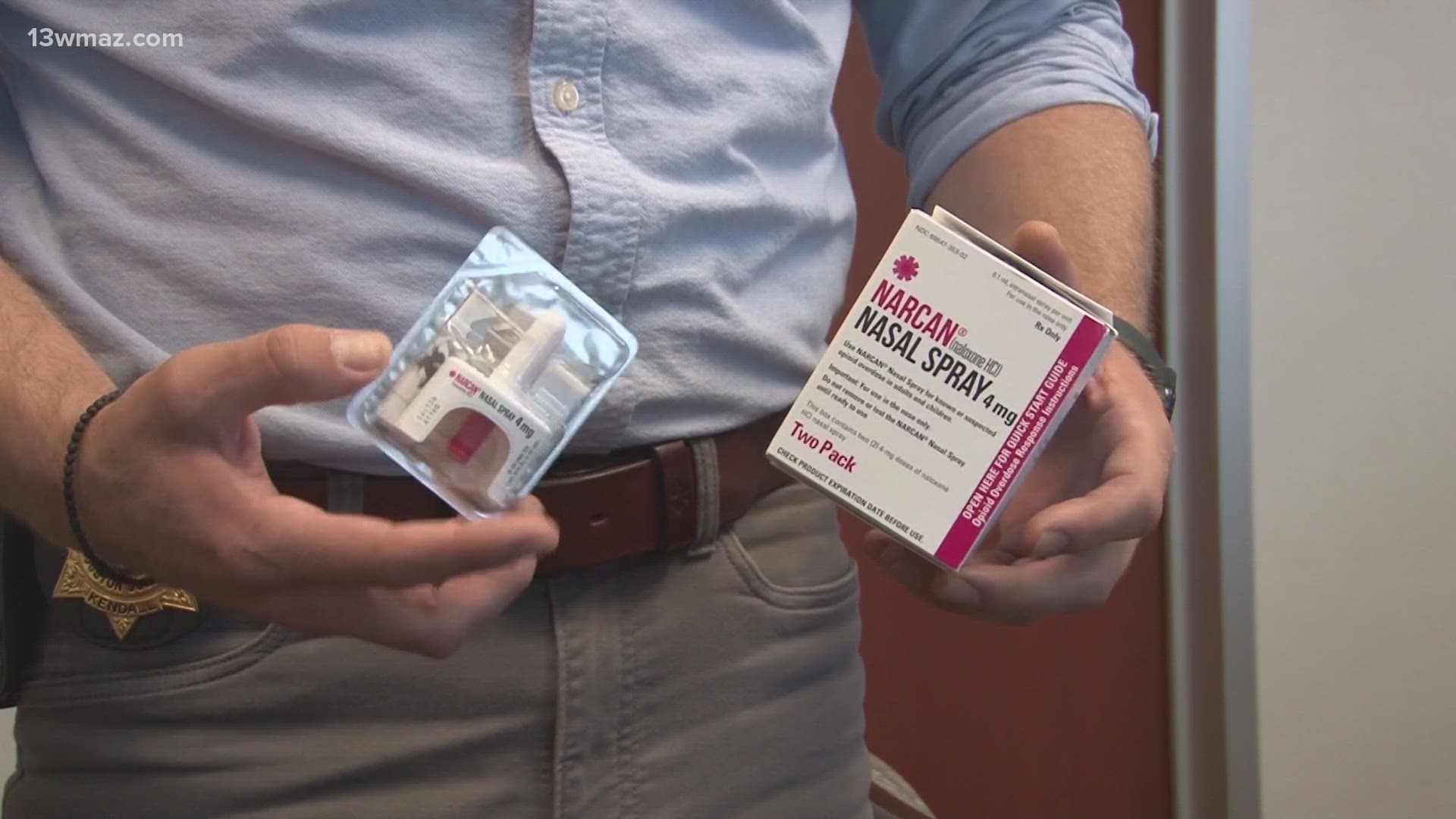HOUSTON COUNTY, Ga. — A life-saving drug is in the hands of first responders in Georgia's Most Progressive County. According to some officials, since the program's implementation this year, it has already made a difference.
Since deploying Naloxone, also known as Narcan, packs to all law enforcement officers, firefighters and EMS responders, first responders have deployed about 25 doses in 16 separate incidents throughout Houston County, according to the district attorney's office.
That includes police officers in Centerville, Warner Robins and Perry.
Quick Access Carry Pouches carry two doses of Narcan, 4 milligrams each.
For an overdose patient, it's a second chance at life.
"I'm a big second chance guy," Police Major Heath Dykes said.
Dykes has seen his share of fentanyl overdoses in Perry.
"It's scary. It's scary to see it," he said. "You try to hold it together to make sure everything you can do to possibly bring 'em back, and get 'em back, but some of 'em are too far gone and you can't bring 'em back... That's the sad thing."
The antidote has been available since the FDA approved Naloxone in March as an over-the-counter drug.
"Narcan has given us a tool to save lives and also protect ourselves," Dykes said.
That is because first responders can be exposed to fentanyl, which can be deadly.
"Law enforcement oftentimes has to search a house before an arrest or after an arrest, search a vehicle. If they come in contact with it then they, too, are gonna need Narcan," District Attorney William Kendall said.
A lethal dose of the contact-drug, fentanyl, in most people is 2 milligrams.
In the past six months since the initiative was implemented, two Perry police officers fell ill post-contact with fentanyl.
"[They've] come in contact with it and had to take 'em to the emergency room because they got physically sick," Dykes said.
They were released a day later and returned to duty, according to Dykes.
On Wednesday, Oct. 4, Dykes rang in his 30-year anniversary on the job.
"In my 30-year career, you almost feel helpless in a way," he said.
Kendall said the cost of the packs were no cost to taxpayers and were covered with "forfeiture funds," or money seized from drug dealers.
"I know it's not a solution to the underlying problem, but I knew it could be done today," he said. "Right now."

